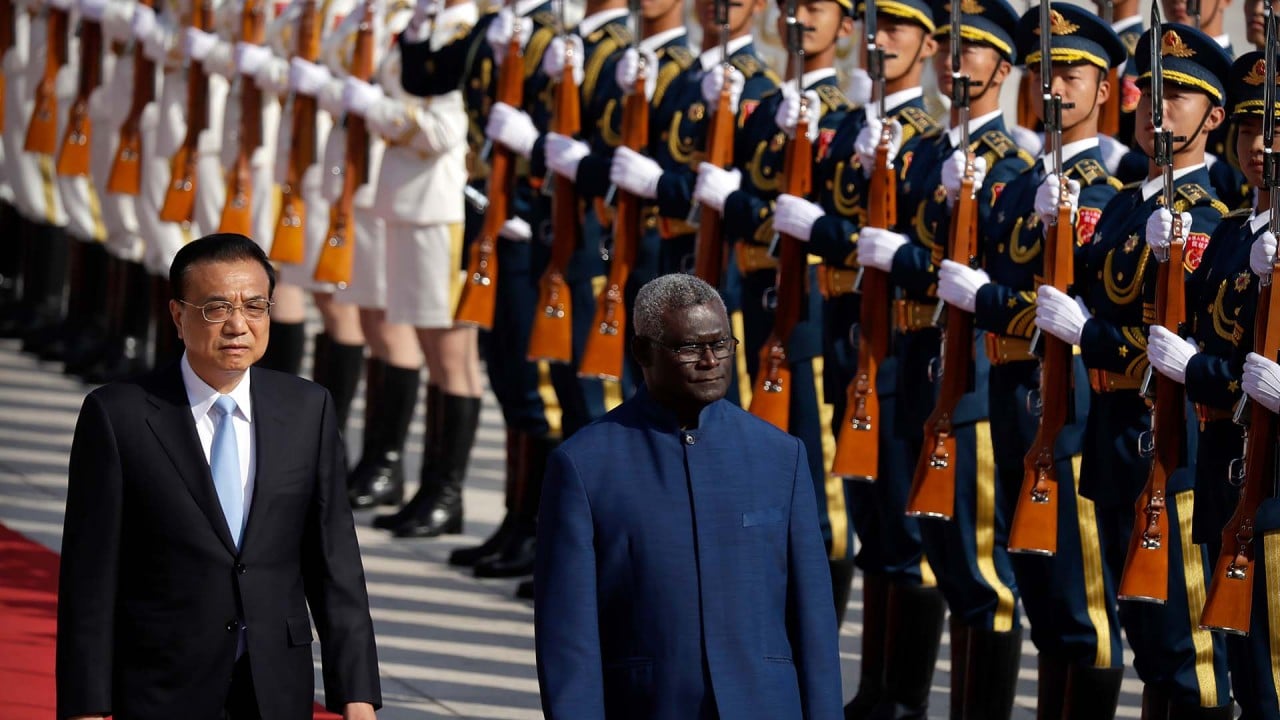
Why China should tread carefully around French interests in Africa and the Pacific
- France could help China improve its EU ties under the banner of strategic autonomy – but Beijing would need to steer clear of red lines in francophone Africa and the South Pacific
- Any Chinese outreach towards Niger’s coup leaders will irk France, which has already warned against ‘imperialism’ in the Indo-Pacific
If China successfully fills the French void in Niger, it would score another point in the Global South amid increasing strategic competition with the United States. But any possible Chinese overtures to Niger’s coup leaders would also irritate France.

Along with neighbouring Chad, Niger is Paris’ last military bastion in the Sahel area after it withdrew troops from Mali and Burkina Faso, which saw military coups in May 2021 and January 2022 respectively. The French were forced to pull forces from Malian territory last year even as Mali’s military leaders were accused of deploying Russia’s Wagner Group mercenaries. Earlier this year, Paris also officially ended military operations on Burkinabe soil.
Losing its position in Niger will be a clear setback for Paris. French troops have been deployed in the landlocked country to combat an Islamist insurgency in the Sahel region. Niger is also the world’s seventh-largest producer of uranium and an important contributor to French nuclear power plants.
China’s geopolitical imperative in Africa is to ensure a stable environment for its investments and trade operations, and this implies that Beijing is in no mood to risk irking France.
If Beijing is prudent about the Niger crisis, it may be less accommodating with France when it comes to geopolitical jockeying in the South Pacific, given the direct implications for China’s defence.
Pacific islands see West’s support for Fukushima plan as hypocrisy
France sees itself as a Pacific actor because of its New Caledonia, French Polynesia and the Wallis and Futuna dependencies, which have about 560,000 French citizens altogether. By virtue of these territories, it has an exclusive economic zone in the South Pacific of about 6.5 million sq km to defend. With 2,840 troops stationed in New Caledonia and French Polynesia, it is the only European power with a permanent military presence in the area.
Chinese tabloid Global Times attacked Macron’s narrative about the risk of new imperialism in the South Pacific, with some experts labelling it “an empty concept” and desperate effort to save France’s marginalised status in the region.
France wants to preserve its sphere of influence in its former African colonies and defend its sovereignty in the South Pacific. Chinese President Xi Jinping will have to take this into account if he wants the entente with Macron to bear fruit.
Emanuele Scimia is an independent journalist and foreign affairs analyst



